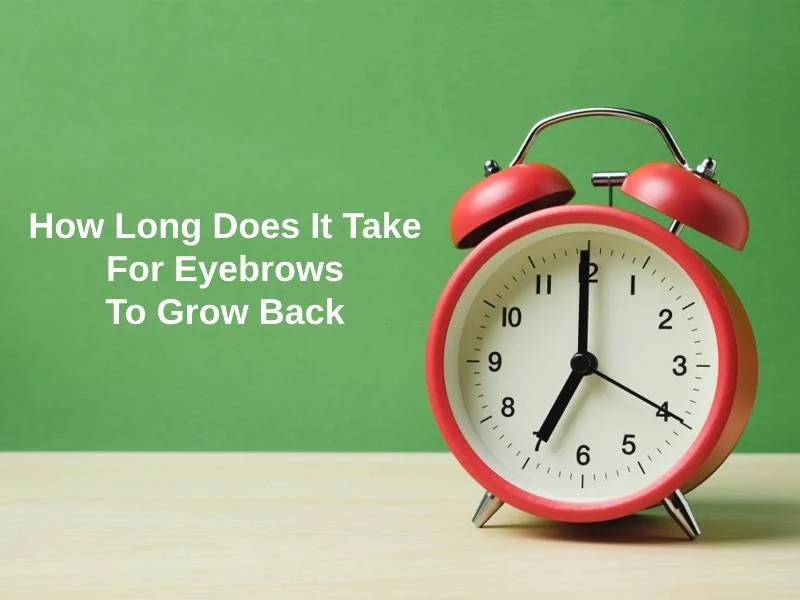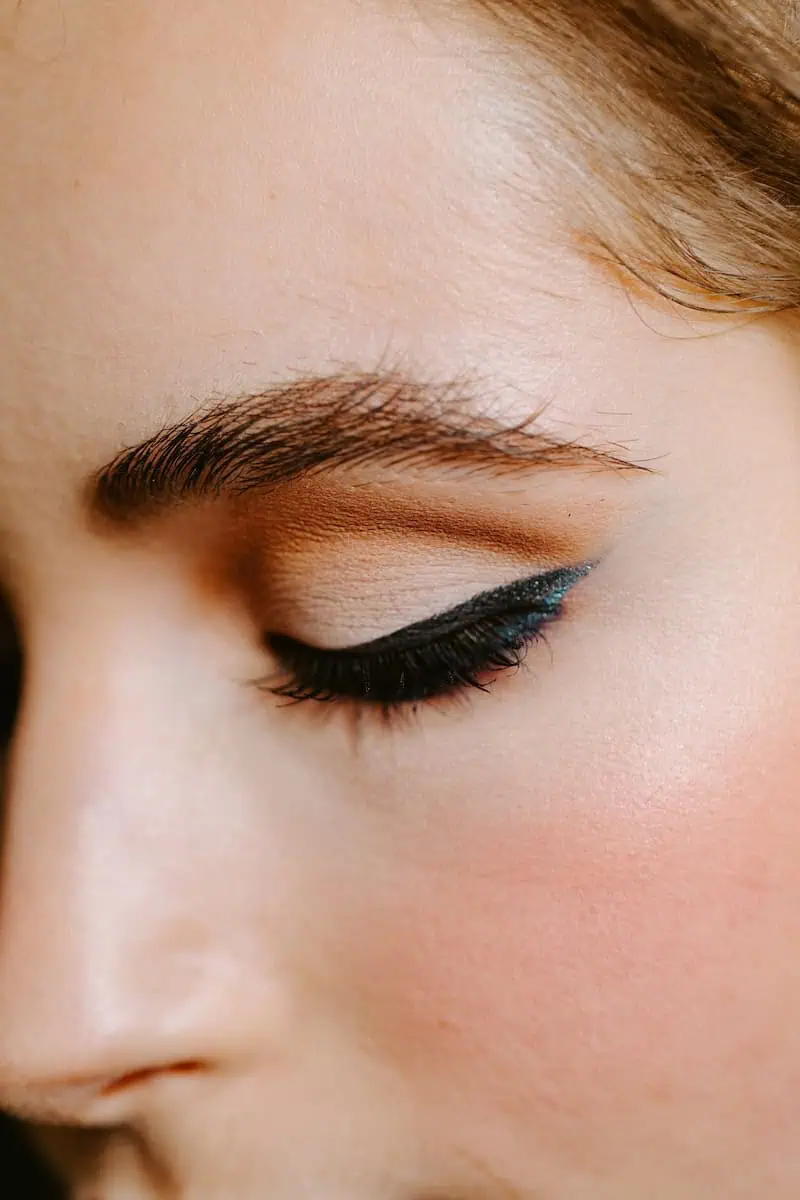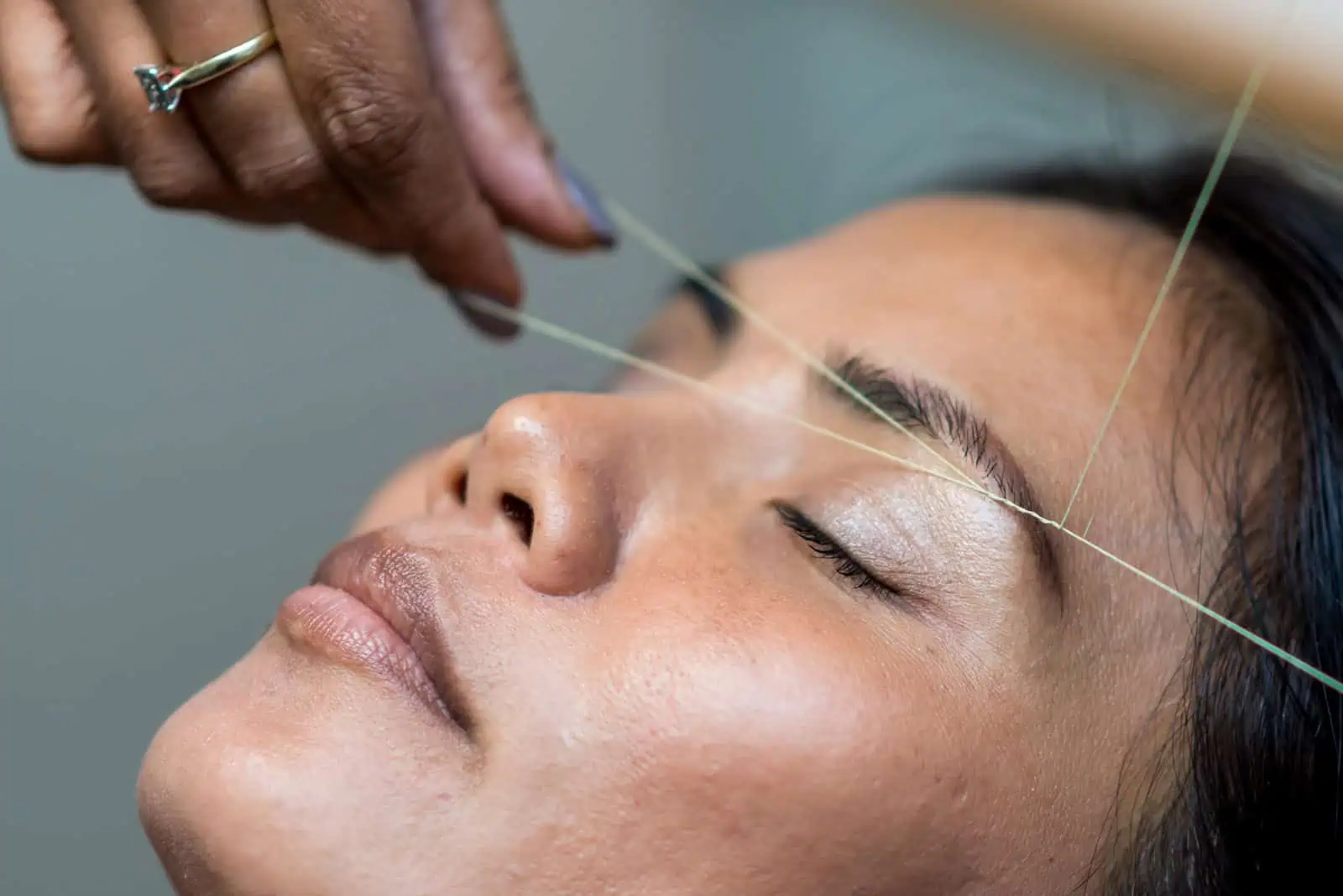Exact Answer: 4 – 6 Months
Eyebrows help in enhancing the overall look of one’s facial features. Some people might feel insecure about their eyebrows due to less hair density in them. There are several reasons why a person might lose their eyebrows. Excessive tweezing, supernumerary years of waxing, and even shaving are some of the common reasons for sparse or missing brows.
Eyebrow hair loss is also a common side effect of chemotherapy. Several medical conditions like alopecia areata, hormonal imbalances, and nutritional deficiencies can also be responsible for eyebrow hair loss.
One’s age, diet, and many other factors play a major role in determining how long it takes for the eyebrows to grow back. According to research, eyebrows grow back within 4 – 6 months but this number can greatly vary depending upon the variable factors responsible for hair growth.

How Long Does It Take For Eyebrows To Grow Back?
When it comes to eyebrow regrowth, patience is the key. Eyebrow hairs must be given at least 2 – 3 months to see hair growth. The hair cycle for eyebrows is between four to six months.
In earlier times, it was believed that once the eyebrows were shaven are lost, they wouldn’t grow back. However, unless one has an underlying condition that causes hair loss or prevents the hair from growing, the eyebrow hair will surely grow back.
Eyebrows grow slower than scalp hair. They grow between 0.14 mm to 0.16 mm per day. Hair growth follows a cycle with three phases. The phases are not synchronized with each other and thus, it takes different amounts of time for different people to observe their eyebrows growing back as some hairs stay in one phase longer than others.

| Phases | Duration |
| Anagen (aka The Growing Phase) | 30 – 45 days |
| Catagen (aka The Transitional Phase) | 2 – 3 weeks |
| Telogen (aka The Resting/Shedding Phase) | 4 – 8 weeks |
Why Does It Take So Long For Eyebrows To Grow Back?
The skin around the eyebrow is very thin and delicate. The eyebrow growth depends on various factors and thus, it might take few weeks and sometimes even a few months for the eyebrow hairs to grow back. However, one can rest assured and should not panic as there is hope for overplucked eyebrows because they surely grow back but the duration widely differs from person to person.
As a general rule of thumb, it takes anywhere from 4 – 8 weeks post removal to notice new hairs, though the actual brow growth takes about 4 – 6 months. That being said, if the brow hairs are simply shaved, it won’t take this much time, as the entire hair does not have to regrow from the follicles.

Three main factors that affect eyebrow growth are as follows:
- Frequency of plucking eyebrow hairs – The more frequently one plucks their eyebrow hair, the more traumatized the hairs get. If one plucks their eyebrow hair every day, it might lead to scarring due to excessive damage. In such a case, the hairs might not grow back.
- Age of the person – Thinning hair is not just limited to the scalp only. As people get older, they lose some amount of hair, including eyebrow hairs.
- Underlying health conditions – The thyroid condition can be one of the reasons for brow thinning as it affects both skin and hair. Anemia (a common blood disorder) or deficiency in iron, vitamin D, or zinc can also slow or stop hair growth.
If one does not see the expected results after 5 – 6 months, see a dermatologist. Prescription supplements, topical medications, and eyebrow hair transplants can help one to regrow their eyebrow hair.
Conclusion
Most of the time, eyebrows do grow back, but how fast they grow will depend on one’s age and overall health. A little patience along with a healthy and balanced diet can ensure the good growth of one’s eyebrow hair. One can avoid plucking their eyebrows too to reduce the stress that falls upon the delicate hairs.
An underlying medical condition might be responsible for sparse hair density in eyebrows. It might also cause the eyebrow hair to fall out or prevent them from growing back properly. One must consult their doctor immediately if the eyebrow hair falls out frequently or stop growing for no obvious reason as it might be an indication of some underlying issue.